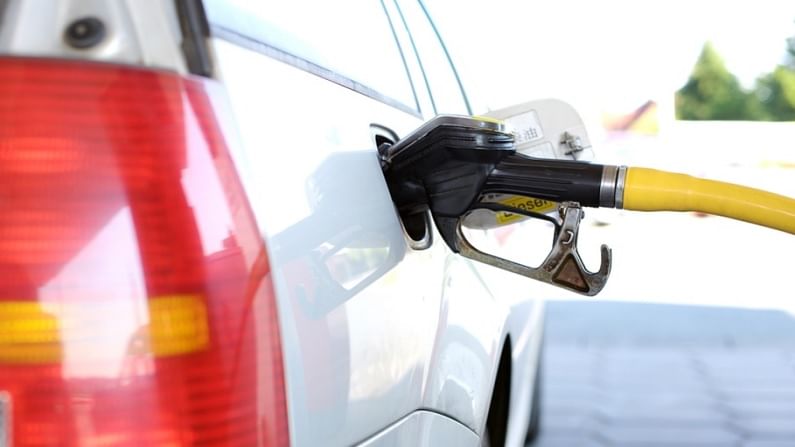Petrol, diesel price rise on hold for 17th consecutive day
While the prices are on hold in all the four metros, both petrol and diesel are the cheapest in Delhi and the most expensive in Mumbai

In the four metro cities petrol and diesel prices have not risen for the 17th consecutive day.
According to the data by Petroleum Planning and Analysis Cell, an arm of the ministry of petroleum and natural gas, the prices of both petrol and diesel are the lowest in Delhi and the highest in Mumbai.
The prices of petrol and diesel in Delhi are Rs 91.17/litre and Rs 81.47/litre respectively.
Those in Mumbai are Rs 97.57/litre and Rs 88.60/litre.
The price in of petrol in Kolkata and Chennai, both of which will go for the elections, is Rs 91.35/litre and Rs 93.11/litre and that of diesel is Rs 93.11 and Rs 86.45/litre respectively.
Though the government maintains that it does not interfere with the pricing of petro products, it is widely believed that the freeze on prices was linked to the assembly elections in West Bengal, Kerala, Tamil Nadu, Assam and Puducherry.
The rise of prices of petro products has become a major issue of political campaign with all parties slamming the Centre for the rise in prices that has sent the cost of a litre of petrol past the psychological mark of Rs 100 in a few states and that of diesel, that contributes to the hike in prices of all commodities, well past the Rs 80/litre mark and even close to Rs 90.
In 2018 before the Karnataka assembly elections, oil marketing companies froze price rise for 19 days between April 24 and May 13. Prices again began to rise 48 hours after polling was over.
On March 15, MoS for Finance Anurag Thakur said while replying to a question in Lok Sabha that both the Centre and the states need to think about reducing taxes on petrol and diesel.
“The Centre is ready to consider the idea of reducing the tax on petrol and diesel, the states should also consider it,” said Thakur.
Thakur also pointed out that in March 2020, the price of crude oil was around USD 19 per barrel. Right now, the price of crude oil stands around $65 per barrel.
In February both Union finance Minister Nirmala Sitharaman and RBI governor Shaktikanta Das said that both the Centre and the state should enter into a dialogue to initiate “coordinated action” to reduce taxes on diesel and petrol.
In the past few weeks as the price of petrol shot past Rs 100’litre, the governments of Meghalaya, Assam, West Bengal, Rajasthan and Nagaland reduced taxes on petrol and diesel by varying degrees in an effort to provide some relief to the common man.
Meghalaya slashed VAT on fuels from 31.62% to 20%. In Rajasthan, after petrol prices breached the Rs 100/litre mark, the Ashok Gehlot government scampered to slash tax rates from 38% to 36%.
The dip in taxes in Assam drove down the prices of both fuels by Rs 5/litre. In Bengal, the government announced a tax cut of Re 1 per litre on both products.
In Nagaland, tax on petrol was reduced from 29.80% to 25% and that on diesel from 17.50% to 16.50%.
However, the Centre has not reduced excise earned from these two fuels.
While central excise duties constitute almost 37-38% of the retail price of petrol, it accounts for almost 39% of the price of diesel.
Earlier, Union Petroleum Minister Dharmendra Pradhan justified the tax on petrol and diesel, arguing the government is spending more on development work during the pandemic that will generate more jobs.